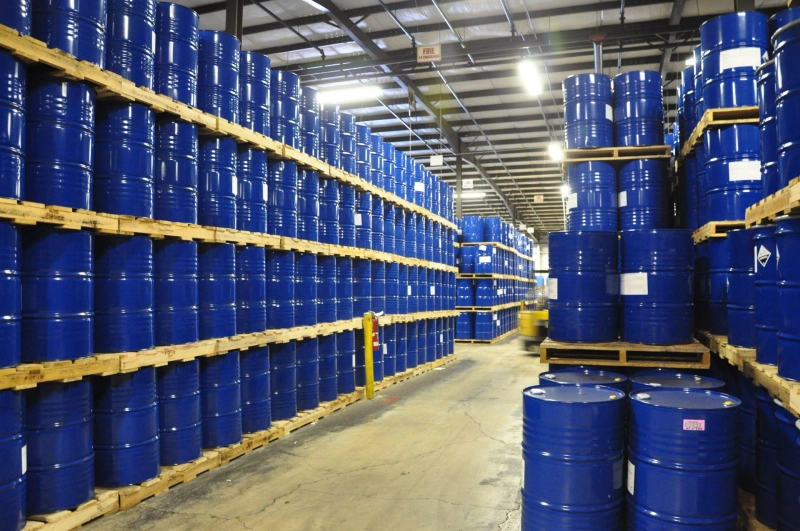In today's fast-paced world, lubricants play a critical role in the efficient and reliable operation of machinery across industries. From heavy machinery used in manufacturing to the engines powering our vehicles, lubricants are essential for reducing friction, preventing wear and tear, and increasing the lifespan of the equipment.
However, with so many options available in the market, selecting the right lubricant for your machinery can be overwhelming. The wrong choice can lead to costly downtime, reduced equipment lifespan, and increased maintenance costs. To ensure that you select the right lubricant for your machinery, you need a robust selection process that includes the following critical factors:
Does your selection process pass the test?
Before you start your lubricant selection process, it's essential to evaluate your current process and identify any gaps. Are you basing your selection on brand loyalty or cost alone? Do you have a clear understanding of the lubricant's intended application and its compatibility with your machinery?
To ensure that your selection process is robust, it's essential to involve all stakeholders in the process, including equipment manufacturers, lubricant suppliers, and maintenance personnel. The selection process should be data-driven, using performance metrics such as friction reduction, wear protection, and cleanliness.
Lubricant Suppliers
Selecting the right lubricant supplier is critical to the success of your lubricant program. A reliable supplier should be able to provide you with a wide range of lubricants suitable for your machinery and application. They should have a track record of on-time deliveries, technical support, and a commitment to quality.
When selecting a lubricant supplier, it's essential to consider factors such as their experience in your industry, their quality control processes, and their ability to provide technical support when needed. A good supplier should also offer customized lubricant solutions tailored to your specific needs.
On-time Deliveries
Downtime can be costly, and delayed deliveries of lubricants can impact your equipment's performance. A reliable lubricant supplier should have a track record of on-time deliveries, even in emergencies. They should also have a contingency plan in place to ensure that your machinery is not left without lubricant when you need it the most.
Support
Technical support is critical when it comes to lubricant selection and application. A good lubricant supplier should be able to provide you with technical support when needed, including product recommendations, lubricant analysis, and troubleshooting. They should also offer training programs to ensure that your maintenance personnel are equipped with the knowledge and skills to use the lubricants effectively.
Contamination
Contamination is a significant cause of machinery failure and can lead to costly repairs and downtime. A good lubricant supplier should have a comprehensive contamination control program in place to prevent contamination of the lubricants during storage, handling, and application.
The program should include measures such as regular lubricant analysis, proper storage and handling procedures, and appropriate filtration systems. The supplier should also provide you with guidance on best practices to prevent contamination of the lubricants.
Lube Selection Committee
A lube selection committee is a group of stakeholders responsible for selecting the right lubricants for your machinery. The committee should include representatives from different departments, including operations, maintenance, and procurement.
The committee's role is to review the lubricant selection process regularly and ensure that it aligns with the company's goals and objectives. They should also review the lubricant specifications regularly to ensure that they meet the machinery's changing needs.
Selection review
Lubricant selection should be an ongoing process that evolves with your machinery's changing needs. Regularly reviewing your lubricant selection can help you identify gaps and opportunities for improvement.
The review should include an analysis of your equipment's performance, lubricant analysis reports, and feedback from maintenance personnel. Based on the review, you can make adjustments to your lubricant program, including changes to the selection criteria, lubricant specifications, and application procedures.
Training
Proper training is essential to ensure that your maintenance personnel are equipped with the knowledge and skills to use the lubricants effectively. A good lubricant supplier should provide training programs tailored to your specific needs.
The training should cover topics such as lubricant selection, handling, storage, and application procedures. It should also include best practices for contamination control and lubricant analysis.
Labeling
Proper labeling of lubricants is essential to ensure that they are used correctly and safely. A good lubricant supplier should provide clear and concise labeling that includes information such as the lubricant's intended application, specifications, and potential hazards.
The labeling should also include information on proper handling and storage procedures, as well as emergency contact information in case of a spill or other incident.
Conclusion
In conclusion, selecting the right lubricant for your machinery requires a robust selection process that considers critical factors such as lubricant suppliers, on-time deliveries, technical support, contamination control, lube selection committee, selection review, training, and labeling.
Partnering with a reliable lubricant supplier can provide you with the expertise and support needed to optimize your lubricant program and ensure that your machinery operates efficiently and reliably. With the right lubricant selection and application procedures in place, you can reduce downtime, extend equipment lifespan, and lower maintenance costs, ultimately improving your bottom line.


